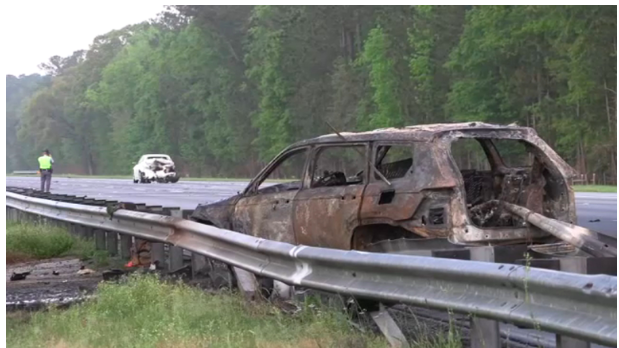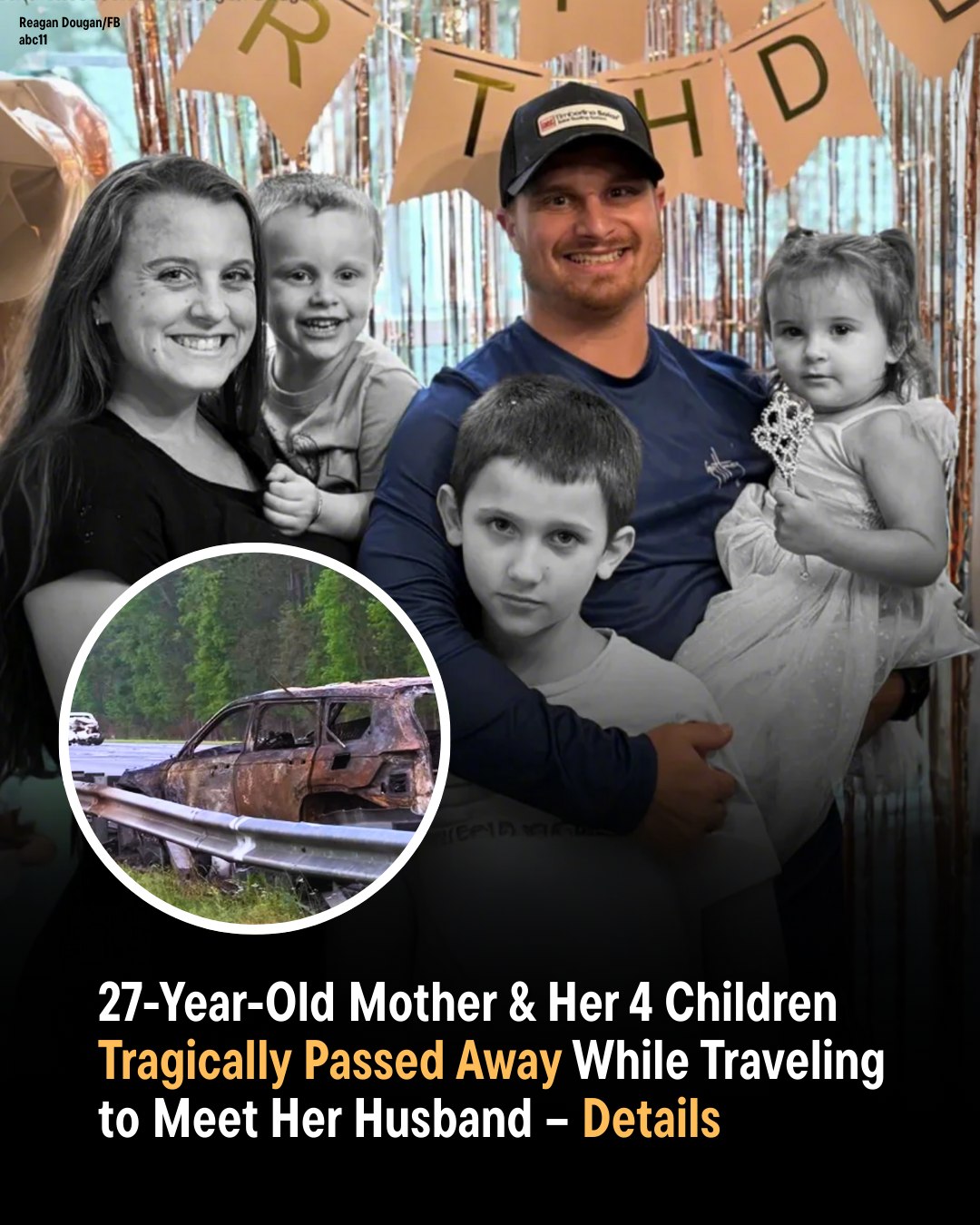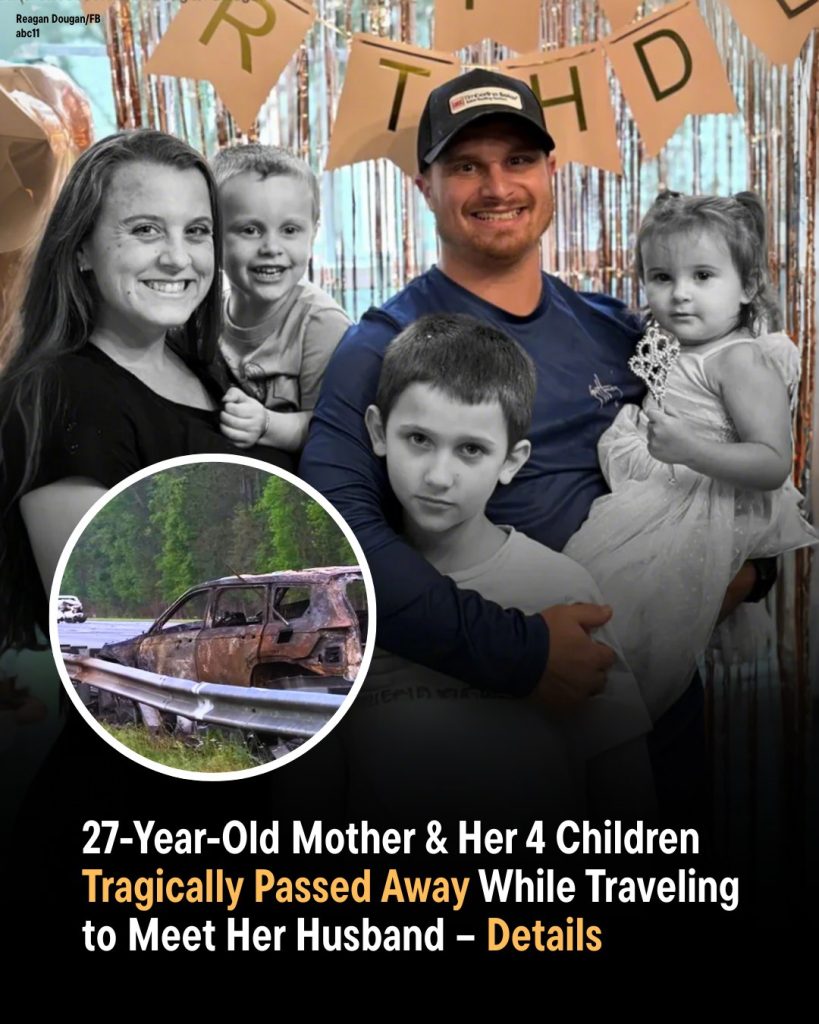“They Were on Their Way to Love”: 27-Year-Old Mother and Her Four Children Tragically Die En Route to Reunite with Husband
When tragedy strikes without warning, it leaves behind more than grief—it leaves questions, aching silences, and, sometimes, a story that needs to be carried forward.
A 27-year-old mother and her four children lost their lives in a devastating accident while traveling to reunite with her husband—a trip that was meant to mark a new beginning. Instead, it ended in heartbreak.
They had packed up the car with snacks, toys, and tiny blankets, excited to be together again as a family. She had sent a photo to her husband that morning—everyone buckled in, smiles wide, a soft caption underneath: “We’re on our way.” That was the last message he would receive.

They were only miles away from their destination when everything changed. Details remain under investigation, but what’s clear is this: the journey, meant to bring joy, became a sudden and permanent goodbye.
Some weeks earlier, in a different part of the country, I stood outside the weather-worn house my grandparents had built decades ago—cracking paint on the windowsills, vines creeping up the porch rails, but still holding echoes of the laughter, love, and resilience that had once filled its rooms.
My late grandmother, in her final days, had asked one thing: “Bring it back. Not for me, but for what it meant—for your grandfather and me, for our beginnings.” I promised her I would. My brother scoffed at the will reading, calling the house a “sinking ship.” But I couldn’t let it go.

So I began. Brick by brick. Memory by memory. Until one afternoon, while digging near the foundation to fix a collapsed drain, my shovel hit something hard—an old wooden hatch buried beneath the soil. I uncovered it, heart pounding, and climbed down into a forgotten cellar where time had stood still.
There, a small box held letters—worn, yellowing, tied with a ribbon the color of summer sky. They told the story of how my grandparents had once fought to survive. Their love had endured financial collapse, cross-country separations, fear, and longing. My grandfather had even hidden his worst days from her, not to deceive, but to protect.
Reading those letters, I understood something: they weren’t just building a house—they were building hope.
I couldn’t stop thinking about that young mother and her children. About the husband who would never get to hug them again. Their story ended on a road they thought would lead to a new chapter. My grandparents’ story had once teetered on the same kind of edge—penniless, separated, with no certainty but love.
There’s no explanation that makes sense of that family’s loss. But there is, perhaps, a quiet calling to the rest of us: to love harder, to rebuild what’s been broken, and to carry forward the dreams of those who no longer can.
When I finally finished restoring the house, Walter came back. Quiet. Apologetic. Changed. We rebuilt the rest together—painted the porch swing Grandpa made, installed new windows, and on Grandma’s birthday, we invited the whole family.
I took them down to that little cellar. We read the letters aloud. We cried, we laughed. And then we stood together, not just in a house, but in a story that had outlived its authors.
And now, when I hear stories like that mother’s—of lives cut short but so deeply filled with love—I am reminded why we rebuild. Not because we can fix the pain. But because we can honor it. Because we can carry it forward.
And in that way, though the mother and her children never made it home—somehow, their love still might.


